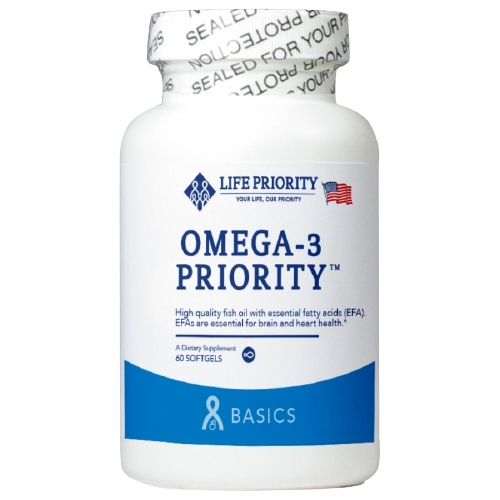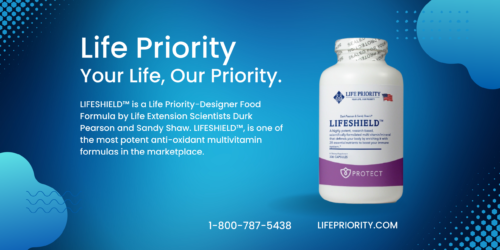

7 Simple Natural Suggestions for Postpartum “Baby Blues”
- by Life Priority
- No Comments
- Post Views: 65
Here are 7 simple and natural ways found to be effective in helping new mothers with the “baby blues”. The term “baby blues” refers to the first days and weeks after your new baby arrives can be sweet and savored, but they can also be overwhelming. Consider these 7 simple natural suggestions:
- Start with your Diet your diet will help support you in your effort to be healthier and have more energy. Diet is one of the most important things you can do for both your health and the health of your
newborn baby. I suggest you meal plan with the goal of a good nutritional plan to get the best nutrients from a healthy diet. Be sure to get lots of fresh organic fruits and vegetables. Meal planning will help you analyze your diet and make life easier and save time and money. Keep plenty of healthy snacks, apples, carrots, nuts and fruit juices handy to help insure your blood sugar levels and make sure you are getting enough fluids. (Hydrated)
Staying hydrated especially when breastfeeding is essential. Dehydration can cause fatigue, irritability and confusion. Try to consume at least 8 glasses of water a day or herbal teas, sparkling water can help with fluid intake but sweeten with natural honey or stevia.
- Supplements can help support your diet and intake of essential nutrients for a healthy diet. Many women
 continue to take their prenatal vitamins for 3 to 6 month period after the baby is born. Omega3 Priority is a supplement that can help with moods and brain health. Many healthcare professionals recommend taking during and postpartum. It has been reported taking 1000mg of Omega3 fish oil every day, will make a big impact on your mood, your stress levels and your overall emotional well-being. Within a day or two of beginning to take fish oil many report feeling less stress and overwhelmed by their emotions. If you don’t like eating fish, supplementing can be a simple and easy choice. Niacin & B Vitamins (found in our Lift formula) are supportive of more energy and fatigue. Niacin can help to ease symptoms of depression, and B-vitamins in general help lift your mood and energy. Vitamin D3 has been found to help support hormone regulation. People who don’t get enough sunshine can get a form of SAD (seasonal affective disorder). Vitamin D3 is especially valuable in the winter months when there is limited sunlight.
continue to take their prenatal vitamins for 3 to 6 month period after the baby is born. Omega3 Priority is a supplement that can help with moods and brain health. Many healthcare professionals recommend taking during and postpartum. It has been reported taking 1000mg of Omega3 fish oil every day, will make a big impact on your mood, your stress levels and your overall emotional well-being. Within a day or two of beginning to take fish oil many report feeling less stress and overwhelmed by their emotions. If you don’t like eating fish, supplementing can be a simple and easy choice. Niacin & B Vitamins (found in our Lift formula) are supportive of more energy and fatigue. Niacin can help to ease symptoms of depression, and B-vitamins in general help lift your mood and energy. Vitamin D3 has been found to help support hormone regulation. People who don’t get enough sunshine can get a form of SAD (seasonal affective disorder). Vitamin D3 is especially valuable in the winter months when there is limited sunlight.
- Fresh Air going outside, and getting fresh air, can really help you to feel better and boost your mood. Also getting some sun (Vitamin D3), is good for you, and good for the baby; it helps to reduce jaundice. Make an effort to get outside at least once every day that the weather is cooperative. Sometimes with a newborn it can feel hard to get out the house, but staying home alone with a baby all the time can lead to feelings of isolation and loneliness and can make your baby blues worse. Aromathery or Essential Oils – can help to boost mood and reduce stress and anxiety during the postpartum period. Some of these oils include sandalwood, lavender, citrus oils. Make up a room spray, simply add water and several drops of essential oils in a little spray bottle and spray it around your house as often as you like.
- Light Exercise- Exercise helps to clear your mind boosts your serotonin levels, and helps your body bounce back from pregnancy, which will also help you to feel better. Walking is a great way to get moving and start getting back into shape. You do need to be careful not to overdo it. (Be sure to check with your doctor, especially in the first postpartum weeks) Taking a short walk/jog about three times a week can really be a great bonding time, put your baby in a carrier or stroller and take a light walk around the block. Get out of the house by yourself and talk a quick walk, after the baby is fed and content or sleeping, leave dad or a friend in charge.
- Rest -Making sure you rest and get enough sleep during those early weeks. When the baby is sleeping you may feel like you need to use that time to catch up on getting things done, but try to make an effort to sleep some of the time when your baby is sleeping. Getting enough sleep can really make a big difference in how you feel. So while you don’t always have to sleep when the baby is sleeping, babies sleep a lot, try to make it a point to try to sleep with the baby at least once during the day. Maybe adjust your bedtime to even go to bed early and catch up on that much needed sleep.
- Talking many women have found that one of the best ways to deal with the” baby blues” was to talk about it. Sharing your emotions and feelings are very important. All women go through a hormone imbalance after a pregnancy. Diet and exercise will definitely help but it is very important to talk about what you are feeling. Newborns sleep all the time, and will sleep pretty much anywhere, so you don’t have to worry about being at home for nap time. Taking advantage of this time by making a point to meet with family and friends will help to ease those feelings of isolation.
- Ask for help the first few days, weeks, and even months with a newborn can feel overwhelming. Between the time spent sitting and nursing, to caring for older children, it seems like there are not enough hours in the day to get everything done. Try to get as much help from others as you can – whether it’s accepting meals, offers to watch your older kids, or even cleaning your house.
Finally, with the support of family and friends, you cannot only help feel better, but get better support. Having a good support system to find ways to help ease stress and the feelings of being overwhelmed, as well as finding ways to boost moods and balance your hormones, will help you to feel better. *If you are experiencing baby blues, or stronger feelings of depression, the most important thing you can do is to seek medical help, talk it over with your doctor or midwife to find a treatment plan that will work for you.*
To Your Health!
*Information is provided is for educational purposes only. Information is NOT intended to diagnose or treat any medical condition.
Information sourced from Baby Blues: A Naturopathic Approach for Postpartum Health By Dr. Nancy Lins, ND)
Americanpregnancy.org/first-year-of-life/baby-blues/
Mayoclinic.org
Postpartum baby blues symptoms
Signs and symptoms of baby blues — which last only a few days to a week or two after your baby is born — may include:
- Mood swings
- Anxiety
- Sadness
- Irritability
- Feeling overwhelmed
- Crying
- Reduced concentration
- Appetite problems
- Trouble sleeping
Postpartum depression symptoms
Postpartum depression may be mistaken for baby blues at first — but the signs and symptoms are more intense and last longer, eventually interfering with your ability to care for your baby and handle other daily tasks. Symptoms usually develop within the first few weeks after giving birth, but may begin later — up to six months after birth. Postpartum depression symptoms may include:
- Depressed mood or severe mood swings
- Excessive crying
- Difficulty bonding with your baby
- Withdrawing from family and friends
- Loss of appetite or eating much more than usual
- Inability to sleep (insomnia) or sleeping too much
- Overwhelming fatigue or loss of energy
- Reduced interest and pleasure in activities you used to enjoy
- Intense irritability and anger
- Fear that you’re not a good mother
- Feelings of worthlessness, shame, guilt or inadequacy
- Diminished ability to think clearly, concentrate or make decisions
- Severe anxiety and panic attacks
- Thoughts of harming yourself or your baby
- Recurrent thoughts of death or suicide
Information sourced from the Mayo Clinic: https://www.mayoclinic.org/diseases-conditions/postpartum-depression/basics/symptoms/con-20029130
Life Priority, established in 1994, offers supplements that are scientifically-formulated, results-oriented, and GRAS (Generally Recognized As Safe) and are manufactured at USDA and FDA inspected facilities.
*The products and statements made about specific products on this web site have not been evaluated by the United States Food and Drug Administration (FDA) and are not intended to diagnose, treat, cure or prevent disease. All information provided on this web site or any information contained on or in any product label or packaging is for informational purposes only and is not intended as a substitute for advice from your physician or other health care professional. You should not use the information on this web site for diagnosis or treatment of any health problem. Always consult with a healthcare professional before starting any new vitamins, supplements, diet, or exercise program, before taking any medication, or if you have or suspect you might have a health problem.
*Any testimonials on this web site are based on individual results and do not constitute a guarantee that you will achieve the same results.
Sign up for emails from OneHeartNetwork.com:
By providing your email address, you are agreeing to our privacy policy.



